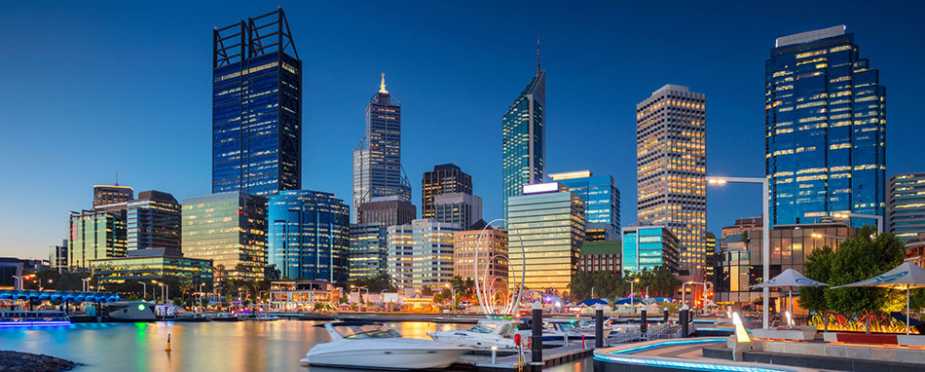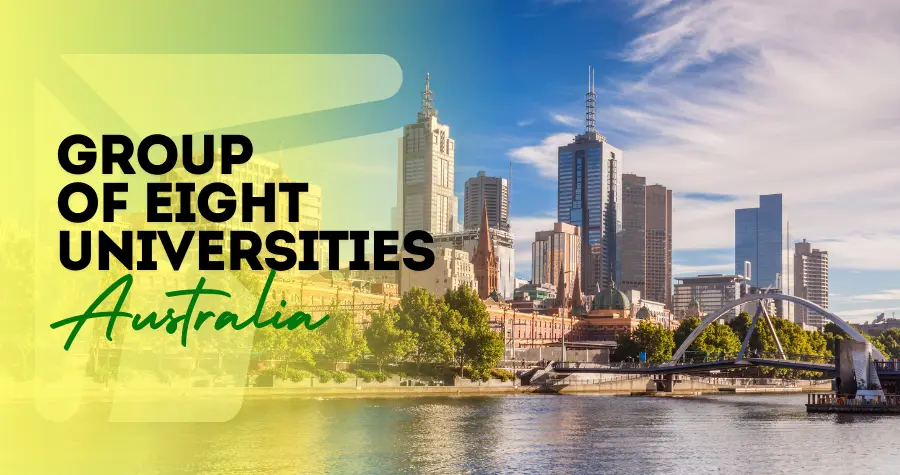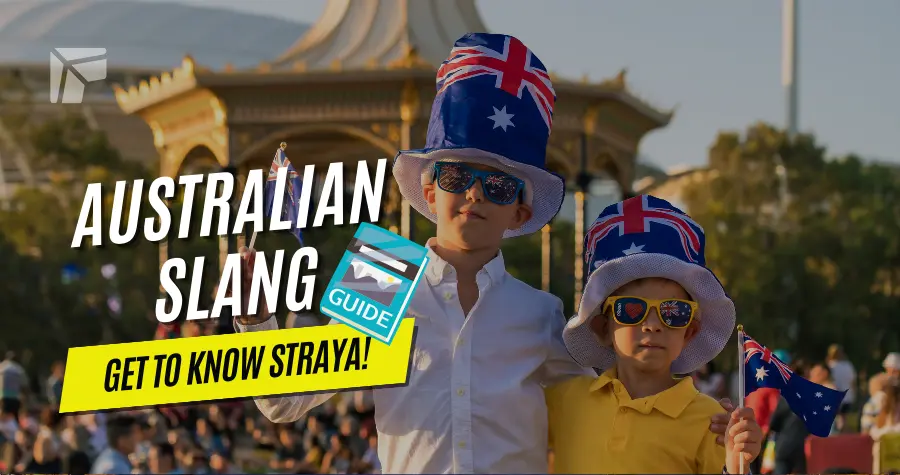Find your ideal university and best course for your dream career
It can be confusing which country to choose for your studies abroad. You will need to learn a lot about each of the possible countries and the educational systems before making a decision.That’s why PingmeStudyAbroad, the leading Europe study visa consultants has set up a useful guide about the top study abroad destinations

Study In Australia
Australia draws people all over the world, since when compared to the US or UK, the living expenses in Australia is reasonable, and most importantly, studying in Australian universities is cheaper. Going to Australia means simple visa formalities through a visa consultant. And while in Australia you can explore many scenic places as well.
Questions
1. International recognition
Employers and leading educational institutions recognize Australian qualifications in many countries around the world.
2. Top-notch quality in education
Moreover, most courses and training undertaken by international students in Australia are covered by the Australian Qualification Framework (AQF).
3. Affordable tuition and living
In Australia, a student gets value for money in terms of the cost of living. The conversion factor is cheaper compared to the UK or US. That’s why Australia is one of the top study abroad destinations for Indian students. Australia’s standard of living is amongst the highest in the world. Living expenses and tuition costs are considerably lower in Australia than they are in the United States and the United Kingdom.
4. Students can work part-time
International students can work part-time while they study, allowing them to support their finances.
5. Generous scholarships
Australian students can apply for various scholarships offered by the Australian government to support their studies.
6. Progressive nation & research focused
Australia is a progressive country, and it is known for adopting new technologies at a faster rate than in most other countries. Facilities for teaching, training, and research are best-in-class and are very student-friendly. You will experience top-quality education and study methods in the country with all recognized universities.
- Australia has a population of 2.46 crore and a total area of 7.692 million km². Despite the larger area, the population is very less in the country.
- Australian highway named Highway 1 is the world’s longest national highway with a total distance of 14,500 kilometers.
- Australia is famous for Kangaroos. The interesting fact is that there are more Kangaroos than humans in the country.
- There are around 10,000 beaches in Australia, and they are one of the biggest tourist attractions in the country.
Australia follows the nation-wide system named the Australian Qualification Framework (AQF), which is recognized by the Government of Australia. Students can move inside this framework according to their grades. There are 41 universities in the country, in which the Government runs 39 of them.
Types of Degrees
- Undergraduate Studies: Bachelor programs with a duration of 3 to 5 years.
- Postgraduate Studies: There are a wide variety of postgraduate studies available in Australia.
Australia is a major study abroad attraction for international students. The major programs in the country are in hospitality, education, business administration, information technology, health, management, and finance. The following are the other important programs in Australia:
- Agriculture
- Administration and Law
- Education
- Engineering
- Health Sciences
- Hospitality and tourism
- Humanities
- Mathematics and computing
- Science
- Visual and Performing arts
- Communications
- IT
- Social studies
Tuition fees & costs
According to StudyMove.com, the average tuition fee for international undergraduate students was AU$29,235 (~US$23,400) per year in 2017. Study in Australia, the official government site for international students, gives the typical annual tuition fees for international graduate students as:
- Master’s degree – AU$20,000 (US$16,000) to $37,000 (US$29,600);
- Doctoral degree – AU$14,000 (US$11,200) to $37,000 (US$29,600).
- Shared Rental – $85 to $215 per week
- On-campus – $90 to $280 per week
- Homestay – $235 to $325 per week
- Rental – $165 to $440 per week
- Groceries and eating out – $80 to $280 per week
- Gas, electricity – $35 to $140 per week
- Phone and Internet – $20 to $55 per week
- Public transport – $15 to $55 per week
- Car (after purchase) – $150 to $260 per week
- Entertainment – $80 to $150 per week
Admission requirements
You have two methods for applying to a university in Australia:
- You can apply online, directly for the university study program, by downloading the application form and submitting all required documents.
If your application is successful, you will receive a ‘Letter of Offer’. To confirm your application, you must reply to this letter by signing and sending an acceptance of the offer.
- You can also apply on a special website dedicated to higher education studies in Australia. Each program has an application section where you can find all the requirements for applying.
There are over 60,000 English-taught programs in Australia.
For attending these programs, you must prove your English language proficiency. All Australian universities accept these official English exams:
- IELTS
- TOEFL
- CA
Documents required for admission
- Attested copies of X, XII & Graduate Degree (if applicable), Mark Sheets including Backlogs (Re-sits)
- Evidence of English Language proficiency e.g. IELTS, TOEFL, etc.
- Standardized Tests e.g. GMAT, GRE (where necessary for the program)
- Two academic references
- Two references from employers (where applicable)
- Passport-sized photographs
- Statement of Purpose (SOP)
- Resume/CV
- Draft for application fees, if applicable
- Portfolio (for Art, Design & Architecture Courses)
- Other Certificates & Achievements of Extracurricular Activities
Intakes & Deadlines
There are two student intakes each year – Semester 1 and Semester 2, and Semester 1 2020 applications are open now and will close by 15 December 2019. Semester 2, 2020 applications will open on 28 November 2019 and will close by 10 May 2020.
To study in Australia, you will have to obtain a student visa. The following are the eligibility criteria for an Australian student visa:
- Accepted to study full-time at an educational institution in Australia
- Accommodation and living arrangements in the duration of your intended stay in Australia if you are under 18 years of age.
The following are the visa service procedure for obtaining an Australian student visa. You can approach Pingme Study Abroad for visa service assistance.
- Gather your documents
- Prepare your documents
- Pay the application fees
- Apply for the visa at the embassy
- Provide additional documents required
- Track and manage your application
- Visa decision
Documents required for visa
- Proof of enrolment (your electronic confirmation of enrolment)
- A valid passport
- Your visa application fee
- Your Genuine Temporary Entrant (GTE) statement
- Academic and work experience documents
- Evidence of your English proficiency skills (book your place in the IELTS test)
- Evidence of financial ability (tuition fees, living expenses, expenses for dependents, return airfare)
- Details of your health insurance policy (Overseas Student Health Cover )
- Statement of purpose
- Passport-sized photographs
Visa fee
The normal Australian study visa fee is AU$620, which is around 30,000 in Indian rupees.
Processing time
The processing time will be 37-68 days.
Financial requirement
AU$20,290, which is around 10 lakh Indian rupees.
Australia is a good nation in providing great job opportunities for qualified individuals. If you have completed your 2 years of education in the country, you can apply for a Skilled-Graduate visa, which will let you work 24 months in the country. During this period, students can work to earn money and learn additional skills including language for increasing points in General Skilled Migrant Policy, which will help you in getting the PR.
Skilled-Graduate visa holders can apply for any of the following visa permits during the validity:
- Provisional Skilled – Regional Sponsored visa (Subclass 487)
- Permanent Skilled – Independent visa (Subclass 885)
- Permanent Skilled – Sponsored visa (Subclass 886)
- Employer-sponsored visa
Want to get free counseling? Don’t hesitate to contact us with your doubts.
Related Blog Articles
25
Jul

The Group of Eight: Australia’s Leading Universities Explained
Discover the Go8: Australia’s elite universities offering world-class education, groundbreaking research, and vibrant campus life. Your future starts here!
15
Jul

Lollies and Biccies: Understanding the Australian Slang
Dive into Australian slang's origins and explore how this vibrant lingo unites diverse communities and shapes Aussie identity.